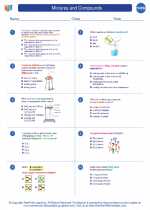Understanding Altruism
Altruism refers to the selfless concern for the well-being of others. It encompasses behaviors and actions that benefit others at one's own expense.
Biological Basis of Altruism
In biology, altruism is studied in the context of evolutionary theory and the concept of inclusive fitness. This theory posits that individuals may exhibit altruistic behaviors towards genetically related individuals because it can ultimately enhance the survival and reproductive success of their own genes, even if it comes at a personal cost.
Psychological Perspectives on Altruism
Psychologically, altruism is studied in relation to empathy, compassion, and prosocial behavior. Empathy, the ability to understand and share the feelings of others, is considered a key motivator for altruistic actions.
Factors Affecting Altruism
- Empathy and Compassion
- Social Norms
- Personal Values
- Reciprocity
- Situational Factors
Study Guide for Altruism
To deepen your understanding of altruism, consider exploring the following topics:
- Theories of altruism in evolutionary biology
- The role of empathy, compassion, and prosocial behavior
- Cross-cultural variations in altruistic behaviors
- The relationship between altruism and moral philosophy
- The psychological and physiological mechanisms underlying altruistic behavior
◂Chemistry Worksheets and Study Guides High School. Mixtures and Compounds

 Worksheet/Answer key
Worksheet/Answer key
 Worksheet/Answer key
Worksheet/Answer key
